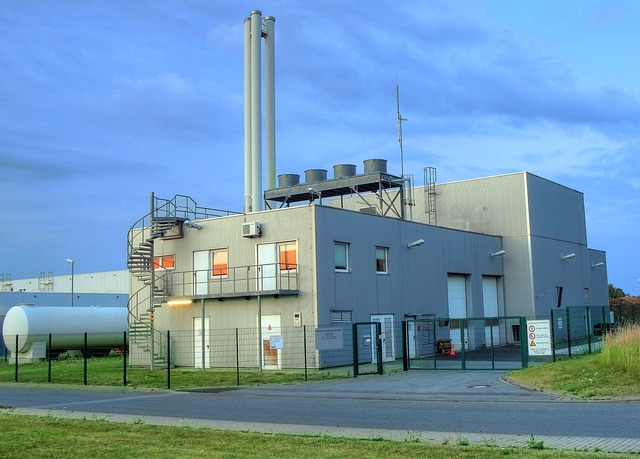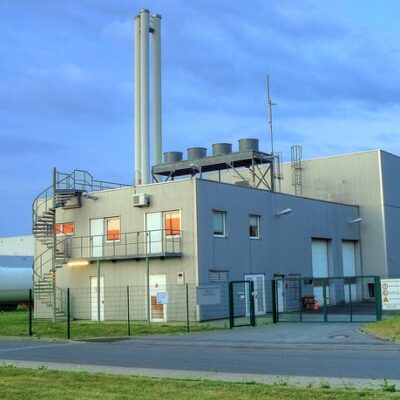Biomass Energy Consulting, Sales & Installation
We consult, sell, install and maintain biomass energy facilities in Nigeria & Africa
Biomass Energy Sales & Installation In Nigeria & Africa
Global Locations
Phone: +234 808 0888 162
Email: [email protected]
Address: 17/21, Akinsanya Street, Ojodu Berger, Lagos.
Hours: Mon-Fri: 9am – 4pm
Email: [email protected]
Address: 17/21, Akinsanya Street, Ojodu Berger, Lagos.
Hours: Mon-Fri: 9am – 4pm
Download Brochure
Our Service To You
With Ground Zero Africa Industries' renewable energy solutions, you can successfully switch to clean and sustainable energy with our comprehensive biomass energy solutions.
Our experienced team specializes in the sales, installation, and maintenance of top-quality biomass facilities, so you can enjoy lower energy costs, reduced carbon footprints, and experience reliable power supply.
Embrace the future of energy with our trusted biomass products and services which can be deployed anywhere in Nigeria or Africa.
Our experienced team specializes in the sales, installation, and maintenance of top-quality biomass facilities, so you can enjoy lower energy costs, reduced carbon footprints, and experience reliable power supply.
Embrace the future of energy with our trusted biomass products and services which can be deployed anywhere in Nigeria or Africa.

What Is Biomass?
Biomass energy refers to the energy derived from organic matter, such as plants, agricultural residues, wood pellets, and animal waste. It is a renewable energy source that harnesses the chemical energy stored in biomass through various conversion processes.
Biomass can be used for direct combustion to produce heat or generate electricity. In this method, organic materials are burned in biomass power plants or stoves, and the heat generated is used for heating systems or to drive steam turbines for electricity generation.
Another way to utilize biomass is through biochemical conversion processes such as anaerobic digestion and fermentation. Anaerobic digestion breaks down organic matter in the absence of oxygen, producing biogas, which can be used for heating, electricity generation, or as a fuel for vehicles. Fermentation converts biomass into biofuels like ethanol and biodiesel, which can be used as a substitute for fossil fuels in transportation.
Biomass energy is considered renewable because the organic materials used for its production can be replenished through natural processes. It also offers environmental benefits by reducing greenhouse gas emissions and dependence on fossil fuels. Additionally, biomass energy can contribute to waste management by utilizing agricultural residues, forestry waste, and other organic materials that would otherwise be discarded.
However, the production of biomass energy must be carried out sustainably, ensuring responsible sourcing and management of biomass feedstock to avoid negative impacts on ecosystems and food supplies.
Overall, biomass energy is a versatile and renewable energy source that can contribute to a more sustainable and low-carbon future, providing heat, electricity, and transportation fuels while reducing reliance on fossil fuels.
Biomass energy refers to the energy derived from organic matter, such as plants, agricultural residues, wood pellets, and animal waste. It is a renewable energy source that harnesses the chemical energy stored in biomass through various conversion processes.
Biomass can be used for direct combustion to produce heat or generate electricity. In this method, organic materials are burned in biomass power plants or stoves, and the heat generated is used for heating systems or to drive steam turbines for electricity generation.
Another way to utilize biomass is through biochemical conversion processes such as anaerobic digestion and fermentation. Anaerobic digestion breaks down organic matter in the absence of oxygen, producing biogas, which can be used for heating, electricity generation, or as a fuel for vehicles. Fermentation converts biomass into biofuels like ethanol and biodiesel, which can be used as a substitute for fossil fuels in transportation.
Biomass energy is considered renewable because the organic materials used for its production can be replenished through natural processes. It also offers environmental benefits by reducing greenhouse gas emissions and dependence on fossil fuels. Additionally, biomass energy can contribute to waste management by utilizing agricultural residues, forestry waste, and other organic materials that would otherwise be discarded.
However, the production of biomass energy must be carried out sustainably, ensuring responsible sourcing and management of biomass feedstock to avoid negative impacts on ecosystems and food supplies.
Overall, biomass energy is a versatile and renewable energy source that can contribute to a more sustainable and low-carbon future, providing heat, electricity, and transportation fuels while reducing reliance on fossil fuels.
Key Questions & Answers
Some of the key questions and answers you may need are below:
Our trade process spreads across CIF and FOB depending on the buyer's preference.
Here's what they entail:
1). Ex Works:
Ex Works means that the seller shall deliver the goods as soon as they are made available to the buyer at the seller's premises or other designated premises (e.g. factory, plant, warehouse, etc.). The seller shall not be obligated to load the goods onto a collecting vehicle or to clear the products for export.
2). Cost Insurance and Freight (CIF): Here, the seller will handle everything from loading the vessel, paying for insurance, and sending the product to wherever the buyer wants it delivered.
3). Freight On Board (FOB): Here, the seller pays for the transportation of the goods to the port of shipment, plus loading costs, while the buyer pays the cost of marine freight transport, insurance, unloading, and transportation from the originating port to the final destination.
Here's what they entail:
1). Ex Works:
Ex Works means that the seller shall deliver the goods as soon as they are made available to the buyer at the seller's premises or other designated premises (e.g. factory, plant, warehouse, etc.). The seller shall not be obligated to load the goods onto a collecting vehicle or to clear the products for export.
2). Cost Insurance and Freight (CIF): Here, the seller will handle everything from loading the vessel, paying for insurance, and sending the product to wherever the buyer wants it delivered.
3). Freight On Board (FOB): Here, the seller pays for the transportation of the goods to the port of shipment, plus loading costs, while the buyer pays the cost of marine freight transport, insurance, unloading, and transportation from the originating port to the final destination.

We Are Ready To Take Your Order
We ensure that the most critical industrial raw materials ranging from ithium ores like spodumene, lepidolite and amblygonite to the supply of tantalite, silica sand and much more commodities required for manufacturing in the renewable energy space, are delivered on time, every time. We also ensure that we deliver the most efficient and powerful renewable energy solutions to our clients for their vast array of projects
Quick Contact
If you have any questions or need help, please contact our team.
17/21, Akinsanya Street, Ojodu Berger, Lagos, Nigeria
Become A Partner
©2023 Ground Zero Africa Industries, All Rights Reserved.






